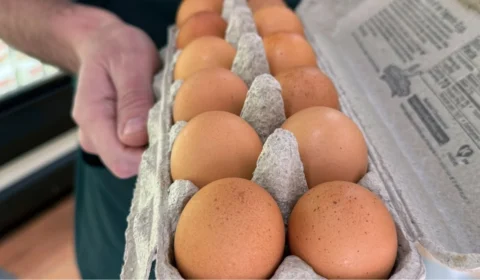Australia woke up this week to two headlines that could change the political landscape and the way we follow it.
One came from John Howard, the longest‑serving Liberal prime minister since Menzies, who warned that the fresh break‑up between the Liberal and National parties could “hand power away for a generation.”
The other was the career shift of award‑winning journalist Laura Tingle, leaving her razor‑sharp political editor’s chair at 7.30 to become the ABC’s new global affairs editor.
On the surface, the stories seem unrelated, yet both touch the same nerve: who tells Australia’s story and how that story shapes votes. Let’s unpack the stakes, the risks, and the practical steps each player—and each voter—can take right now.
🔍 Why Did the Coalition Crack?
- 🤝 Old alliance, new tensions: Policy clashes over climate targets and regional spending finally overflowed.
- 🗳️ Electoral math: Nationals feared losing rural seats if they stayed hitched to city‑focused Liberal pitches.
- 🗣️ Brand identity: Both parties struggled to explain to voters what made them different yet together—vital for campaigns.
- ⏳ Leadership churn: With three Liberal leaders in five years, trust at the party‑room table thinned.
Problem for voters: A divided centre‑right means fewer clear policy choices and a higher chance of minority governments.
🗺️ Howard’s Five‑Point Roadmap to Rebuild the Coalition
- Talk behind closed doors, not through microphones 🤫
Weekly senior meetings can cool emotions before they flare publicly. - Agree on a joint economic platform first 🏛️
Voters care most about jobs and cost of living; unity here earns quick goodwill. - Let each party keep its identity on niche issues 🎣🚜
Nationals campaign hard on water and farming; Liberals on small business and tech hubs. - Share seats, don’t fight them 📍
Avoiding three‑cornered contests stops vote splitting in marginal regions. - Present a common climate policy with flexible local roll‑outs 🌱
One national target, many regional paths—reduces internal brawls and voter confusion.
Take‑away: Howard’s message is blunt—reconcile or risk permanent Opposition.
🗳️ What Can Party Members & Voters Do?
- Grass‑roots Liberals/Nationals: Write to local branches urging a unity convention before year‑end.
- Independent conservatives: Signal preferences early; polling booths are too late for a rescue mission.
- Undecided voters: Compare policy sheets, not slogans. A split may force clearer promises from each side.
🎤 Tingle Trades Canberra Desk for the World Stage
After six years grilling ministers on 7.30, Laura Tingle will soon roam the globe as ABC’s global affairs editor. She’ll still appear on TV and radio, but her beat widens from Canberra corridors to conflict zones and trade summits.
Why Her Move Matters 🧐
- 🌏 Bigger lens on domestic stories: Cost‑of‑living chatter at home often starts with supply shocks overseas.
- 📰 Depth over daily skirmish: A global brief frees Tingle to dig, not just chase press‑gallery sound bites.
- 🎥 New storytelling tools: Expect interactive maps, frontline reports, and data visuals that bring foreign shifts back to local hip pockets.
🔄 How Tingle’s Shift Could Shape the Narrative
- Leaders under a wider microscope 🔍
A foreign policy stumble can now lead the 7.30 rundown when Tingle files from the field. - Voters connect dots faster 🧩
Stories on Pacific security or trade will explain direct effects on farmgate prices or mortgage rates. - Media competition heats up 🔥
Commercial networks may bolster their own foreign bureaus, giving audiences richer choices.
🏛️ Political Fallout: Unity Talks Meet Sharper Journalism
With Howard lobbying for a patched‑up Coalition and Tingle ready to translate global tremors into household headlines, politicians have less room to spin. Every mixed message risks instant fact‑checks and voter fatigue. The window for a Coalition repair job may close simply because public patience, stoked by sharper coverage, won’t wait.
📌 Quick Checklist for Engaged Citizens
- ✅ Check voting records of your local MP on coalition issues.
- ✅ Follow multiple outlets—not just one network—to compare framing.
- ✅ Join town halls or online forums where party negotiators explain positions.
- ✅ Bookmark ABC Global for Tingle’s upcoming deep‑dives.
🏁 Final Thoughts
Australia stands at a crossroad: a centre‑right partnership in pieces and a top political journalist stepping onto a global stage. Whether Howard’s call for unity is heeded will set the tone for the next election cycle. Meanwhile, Tingle’s broader beat promises to connect backyard concerns with world events more vividly than ever.
For voters, the takeaway is clear: stay curious, stay critical, and keep the conversation alive—because the next chapter of Australian politics will be written as much by engaged citizens as by party rooms or press galleries.
🙋♂️ FAQs
Why did the Liberal and National parties split?
Different priorities on climate, spending, and strategic direction finally outweighed their partnership benefits.
Is the split permanent?
Not yet. Both sides say discussions are ongoing, and former PM John Howard is pushing hard for a reunion.
How could the split affect the next federal election?
A divided conservative vote could hand marginal seats to Labor or independents, changing the balance in Parliament.
What does John Howard recommend?
He proposes private negotiations, a shared economic blueprint, and flexible climate policy to rebuild trust.
Who will replace Laura Tingle on 7.30?
The ABC has begun its search; an interim editor will step in until a permanent appointment is made.
Will Tingle still cover Australian politics?
Yes, but from a global angle—showing how overseas events ripple into domestic debates.
How can I stay informed during this political shake‑up?
Follow reputable outlets, read party policy documents, and watch for updates from the Australian Electoral Commission.
Could the Coalition re‑form before Parliament resumes?
Possible, but insiders say meaningful talks must happen within weeks to rebuild a joint campaign machine.







